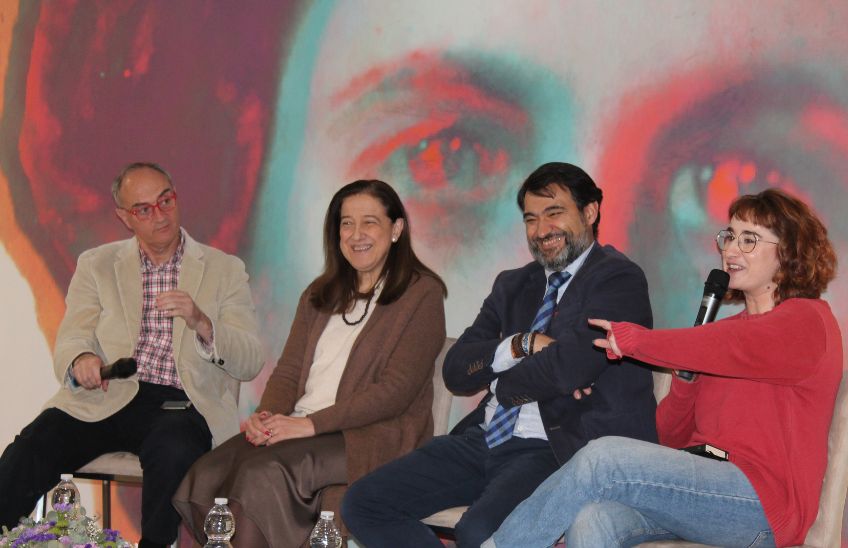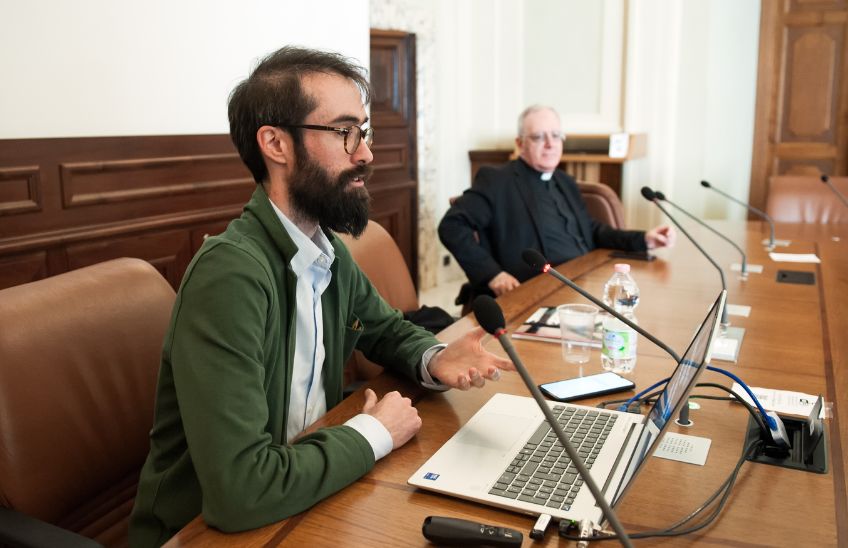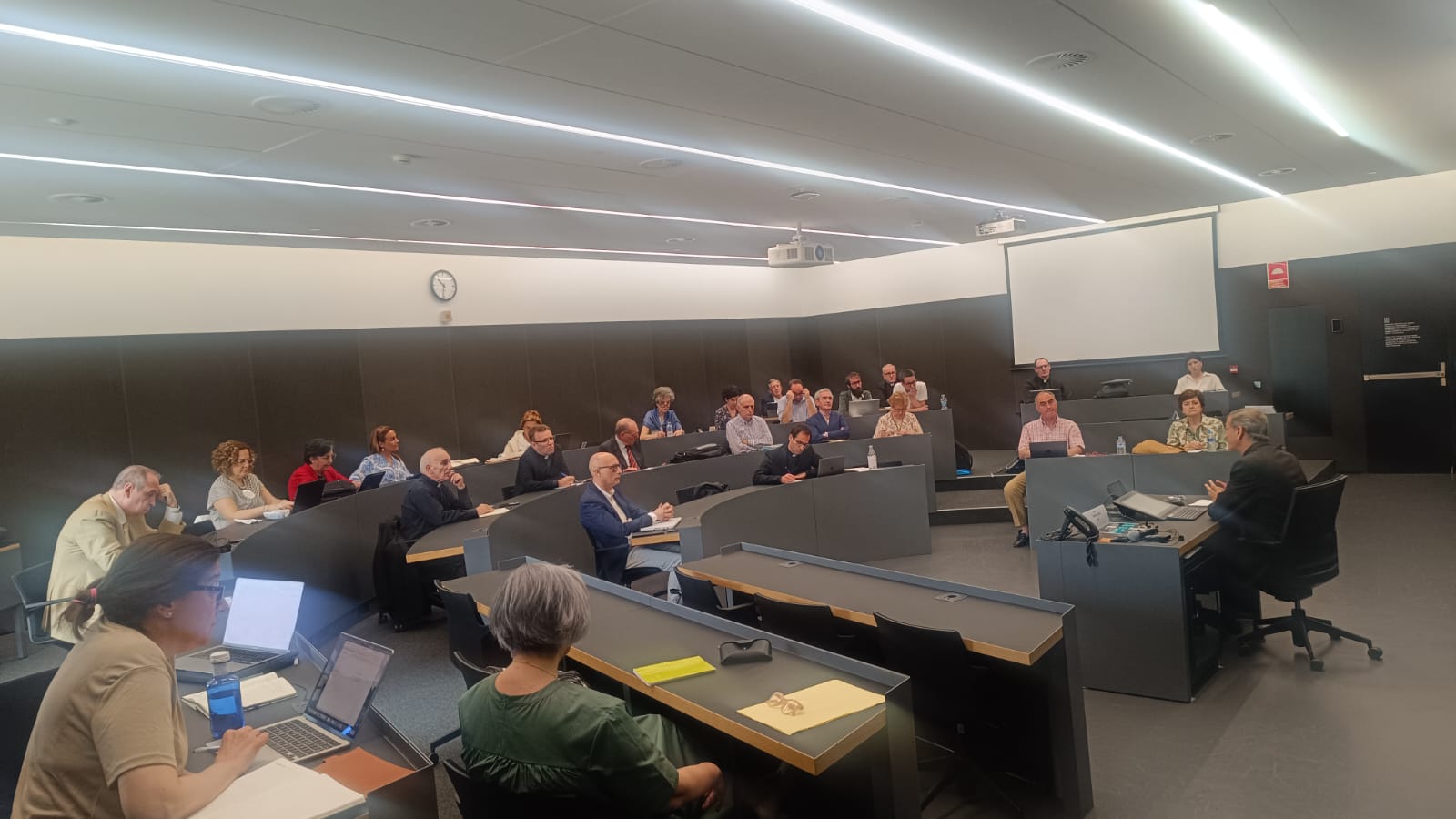Thirty years of history: CEJE celebrates its anniversary
From its origins as a bibliographic collection to its consolidation as an international reference in research on Opus Dei, the Center for programs of study Josemaría Escrivá celebrates three decades of work.

10 | 10 | 2025
In October 2025, the Center for programs of study Josemaría Escrivá (CEJE) will celebrate its thirtieth anniversary. What began in the 1990s as a bibliographic collection aimed at bringing together everything published on Josemaría Escrivá and Opus Dei has now become a space for documentation, research and knowledge dissemination with international projection.
The initiative arose after Escrivá's beatification in 1992, when Full Professor of Canon Law Javier Hervada proposed to the University of Navarra to create a center to preserve the bibliography on the founder of Opus Dei and his institution. That project, conceived in a time before the Internet, laid the instructions for what decades later would become a reference letter for researchers from all over the world.
Federico Requena, one of the first researchers to join the project, comments: "There are many memories of those first moments working with Pedro Rodríguez, CEJE's first director , and with José Luis Illanes, who would soon succeed him. To evoke an anecdote that is not very important, but significant of those beginnings, I could mention the first premises CEJE had of its own. It was half of a large office that the Institute of Church History had in what is now the Sánchez Bella building, then known simply as the Humanities Library. The great Library that we know today was still under construction, and the window of that office looked directly onto the structure that was being built at that time".
The CEJE began as something small, but in the minds of its promoters it was destined to grow. Onésimo Díaz, now Deputy Director of the center, acknowledges that "what attracted me was the plan for the future that Professor Illanes showed me. He made me see that our work was going to have transcendence inside and outside the history of Opus Dei," he recalls.
These perspectives have been realized. As the current director of the center, Santiago Martínez, points out, "today we are a space that combines documentation, research and dissemination, with our sights set on a more global and digital future".
From documents to digital knowledge dissemination
"The CEJE began as an archive of books and articles, but soon became a laboratory of ideas," explains Santiago Martínez. In those early years, access to information necessarily went through university libraries," he recalls, "and digitization was still a distant horizon.
One of the first to take on the task of bringing order to that growing collection was Mario Fernández, currently a documentalist at the CEJE. "José Luis Illanes, who told me about the new documentation center and programs of study on St. Josemaría Escrivá. At that time the director the center was Santiago Aurell. I was attracted by the good atmosphere and the possibility of applying my knowledge of scientific documentation. Since then, my task has been to facilitate the work of researchers who come to the CEJE in search of information about Josemaría Escrivá and Opus Dei. This work, he explains, was a core topic for professionalizing the cataloguing process.
Shortly afterwards, Constantino Ánchel moved to Pamplona with the valuable material he had gathered over decades in the Historical Office set up in Madrid for the process of canonization of Josemaría Escrivá. "At first I felt a bit out of place," he confesses, because "everyone had their own lines of research and I dedicated myself to digitizing documents and answering queries. But over time, this work allowed other researchers to have access to documentation that was previously scattered.
Over the years, this collective effort has resulted in one of the center's greatest contributions: the Josemaría Escrivá and Opus Dei Virtual Library, which organizes the academic bibliography compiled by the CEJE. All this work, as María Sandúa, technical manager and webmaster, points out, "makes life easier for researchers, since it makes available in digital form bibliography and records that were previously only accessible in physical format.
In its technical implementation, some technology experts have played an enormous role. Santiago Tejero, mathematician and CEJE partner , recalls how he suggested some improvements when he first used the Virtual Library: "From there I proposed a benchmarking work with other virtual libraries, from which improvements emerged. Then we promoted the incorporation of books in eBook format and, more recently, we are developing an artificial intelligence project to integrate the contents of the Virtual Library and facilitate access to researchers.
This same technological commitment has driven a new stage of knowledge dissemination. "While the Virtual Library was the first step to reach a wider public, in the last three years we have worked especially to disseminate the results of our research through social networks, podcasts, interviews and knowledge disseminationarticles," explains Eliana Fucili, director of communication and knowledge dissemination. "We are currently developing a website dedicated exclusively to telling the history of the institution within its ecclesiastical and social context."
An academic view
In these thirty years, the CEJE has consolidated a profile researcher. For Mercedes Montero, associate researcher at the center since 2004, the most significant advance has been "to separate the history of Opus Dei from the family narrative and the apostolate of public opinion. Our minds have been opened to confront the issues without treating them in a hagiographic way, also showing the mistakes. This has strengthened rigor and made us visible in the academic sphere," he says.
This professionalization is also reflected in the journal Studia et Documenta, now indexed in Scopus. "We have managed to ensure that research on Opus Dei is measured with the same scientific criteria as any other historical or religious object," adds Montero.
Along the same lines, another associate researcher, María Luisa Galdón, stresses the importance of disseminating the results of this academic work: "Much is being done to make known the history of the Work, something very positive for its members, who can better understand its origin and evolution, and also for the general public, so that the truth, which has often been distorted, can be known. For researcher Carlos Veci, this history "allows us to get to know those who played a leading role in the history of Opus Dei, to learn from their successes, difficulties and mistakes, and to have a conversation with them that can guide the present.
In addition, in recent years much progress has been made in the creation of networks in different countries to analyze the history of Opus Dei with an academic approach , which has broadened the perspective and enriched the understanding of its development in diverse cultural contexts.
Projection and future
Different generations work in the CEJE offices, combining experience and drive. Historians, documentarians and communicators collaborate with the same conviction that moved its founders three decades ago: to understand and tell the story of Opus Dei with rigor, openness and academic sense.
Looking ahead to the next few years - especially with the approach of the centenary of the founding of Opus Dei (2028-2030) - the center is proposing new research and knowledge dissemination projects. One of the most stimulating challenges, says Santiago Martínez, is to broaden the international scope of the work carried out: "To reach more audiences: the English-speaking and French-speaking world, and areas such as Chinese and Russian. Opus Dei is a global reality, and its history deserves a global projection.



